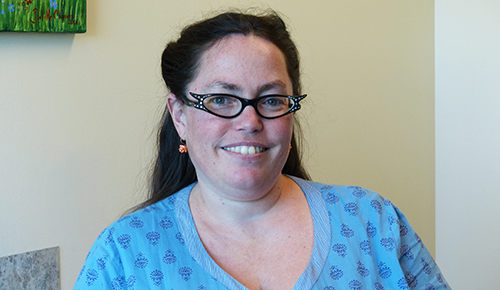
Isabelle Chapados, an associate clinical professor in the Division of General and Community Pediatrics, has won three teaching awards from the Department of Pediatrics.
Isabelle Chapados uses her skills as a storyteller to teach pediatric medical students and residents what they need to know to excel in their careers. In her downtime when she's not practicing as a pediatric endocrinologist, she's writing and illustrating children's books that focus on their health.
"Weird and wonderful stories are still part of my teaching. I like them to think through and then listen to cautionary tales. Humans remember things that are linked to emotion," says Chapados, who is an associate clinical professor in the Division of General and Community Pediatrics.
One of her best teachers was a virologist in Montreal. She had been a veterinarian and had horrific stories about how viruses infected animals. This influenced Chapados on how stories can make an impact for teaching purposes. Chapados also likes incorporating evidence of social sciences, such as the history of child care and how medicine has evolved, into her discussions with learners. She was recognized for her approach by receiving the Annual Excellence in Teaching Award in Community Pediatrics for Undergraduate Medical Education at in 2018. It's her third time winning a teaching award.
Chapados has been teaching in one form or another since she was 12. However, when she was a teenager, she didn't consider medicine as a career. She wanted to be a scientist and worked in a research lab, focusing on immunology and cancer before she started her undergrad. Then she realized she needed contact with people. Chapados graduated from medical school in Montreal and did her pediatrics specialization in Quebec City. She followed her husband to the University of Alberta to focus on endocrinology and her masters in sciences.
She brings learners into her clinic and works at the clinical teaching unit four to six weeks a year. Chapados aims to create an open learning environment where discussions can flow freely. "Learners have an opportunity to see at least 10 cases a day. They can see quite a variety of different patients when they come here (to my clinic). I think students like to be hands on. I like the atmosphere to be relaxed. I like them to make their own experience," she says.